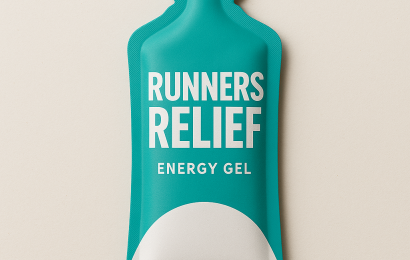
Is it true that running less makes you faster?
You’re not alone if you’ve ever heard professional athletes speak about their 100-plus mile training weeks and thought to yourselves, ‘more miles must be the key to success.’ You’d be correct to some extent.
There have been several studies that suggest a considerable association between marathon performance and running mileage. Running more miles raises aerobic capacity (also known as v02 max) and improves running economy (the efficiency with which your body uses oxygen while running), so it stands to reason that more miles = better.
However, there are other reasons to limit your mileage. It’s time to explore less km if you’ve been fighting with injury, burnout, or simply would like to try something different.
It’s possible that you’d be better off running less if:
You’re prone to getting hurt
Some runners are more likely to be sidelined for whatever cause (genetics, hormone issues, etc) (genetics, hormone disorders, etc). (genetics, hormone issues, etc.). If you have a history of injuries, you should consider reducing your mileage. If you’re preparing for a race, adopting extra rest days (or cross-training) may be beneficial because, in the long run, running healthy, even if it’s less frequently, is preferable to not running at all.
You’re putting in far too many useless miles
Many runners fall into this trap, amassing warm-up, cool-down, and recovery kilometres when they may be better spent doing anything else. Perhaps that “something else” is quicker running (tempo or track intervals), or an extra hour of sleep. In any event, before you go for a run merely for the purpose of it, think about why you’re doing it. Every mile should get you closer to your target, whatever it is!
You aren’t practising any strength training
Many runners painstakingly count the kilometres, but often forget one item that could help them become a speedier, more resilient runner. Strength and mobility training are crucial for preventing injury, improving stride economy, and enhancing speed. Of course, if you want to see improvements on the roads, you must put in the kilometres, but many runners would profit by switching a strength workout for an easy run.
You’ve drained yourself
Overtraining can be difficult to spot, but it occurs when runners put in too much mileage/intensity or don’t get enough rest. It can also happen as a result of a mix of the two. Overtrained runners often experience a drop in performance, leading them to believe they need to run more.
As you may expect, this creates a vicious cycle that leads to even greater overtraining. Excessive fatigue/lethargy, a lack of motivation or enthusiasm for training, new or increased depression or anxiety, difficulty falling or staying asleep, weight loss or loss of appetite, increased sickness or injury, a higher resting heart rate, and decreased performance are all common signs of overtraining.
If you’re new to running, you’re unlikely to be overtrained, but if you’ve been stuck at a plateau or competing at a high level for years, it’s something to consider. Try cutting back on distance or intensity for a few weeks if you’re feeling stale or suffering any of the aforementioned symptoms. A little less physical stress could be exactly what you require.
Every runner’s training schedule is a one-of-a-kind experiment
It’ll probably take a lot of trial and error to find the optimal blend of mileage and intensity, but if you’ve always prized miles over anything else, hopefully, these suggestions can urge you to reconsider.



